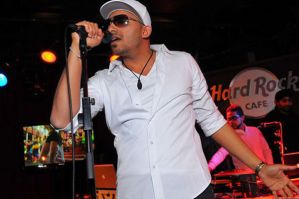SIMCA petitions Madras HC to scrap Copyright Board
* Union of India to file counter within three weeks.
CHENNAI: The South Indian Music Companies Association represented by its secretary, J. Swaminathan, has filed a writ petition challenging provisions of the Copyright Act. The writ seeks a direction from the court to declare sections 11 and 12 of the Copyright Act, 1957, and rule 3 of the Copyright Rules, 1958, as ultra vires of Articles 14, 19(1)(g), 21, 50, 245, and 300-A of the Constitution of India, reports lawetalnews.com.
The association's main grievance among others seems to be an order of the Board dated 25 August, 2010, which fixed the royalty payable by the applicant, FM radio broadcasters, to the music companies including members of the petitioner association, at 2 per cent of the net advertisement revenue earned by the FM radio stations.
The association, which was set up in 1996 as an association of music producers to resolve common problems faced by the music industry in south India, now have a membership base including music production and distribution companies who own copyrights for various musical and other works including various sound recordings, as well as are assignees of musical works and sound recordings of Tamil, Telugu, Kannada, Malayalam, Sanskrit, Hindi, Punjabi movies and music albums. Challenging the said order of the Board, the petitioner association has expressed its fear that similar adjudications, contrary to law, will be the order of the day if the Copyright Board is allowed to be constituted as per the provisions of sections 11 and 12.
Sections 11 and 12 of the Act lay down the provisions for establishment of a Copyright Board and further elaborate the powers and functions of the Board.
In support of the arguments that serious lapses occur at the Board the petition cited the recent suo motu case taken up by Delhi High Court against the Board. Further citing a report filed by amicus curiae, Prathibha Singh, in this case, petitioner argued that the Delhi High Court has come to the view that a deplorable state of affairs exist in the Copyright Board. The High Court had also passed orders for improving the infrastructure and facilities in the Board. The petition further expressed the apprehension that despite the Delhi High Court's efforts, the root cause of the problem lies with the statutory provisions that create the Copyright Board and therefore only improving the infrastructure and the facilities will amount to a case of treating the symptom without addressing the cause. Section 11, which permits excessive executive interference with the working of the Copyright Board, amounts to weakening of the adjudicatory mechanism for copyright law disputes, argued the petitioner association.
Petitioner contended that the challenged sections and rule dealing with the establishment of the Copyright Board and conferring jurisdiction over matters requiring judicial experience and expertise on persons lacking such experience, seriously dilute the independence of the Board and flagrantly violate the principle of �Separation of Powers' as enshrined in the Constitution, as well as deny the citizens of India their fundamental right to free, fair and impartial administration of justice by qualified judges and should therefore be declared ultra vires the Constitution of India. Further highlighting the importance of the Copyright Board it was argued that the Board has extensive powers to decide on complicated issues and disputes in the field of copyright law. Terming, intellectual property rights (IPR) as valuable business assets for any organisation, it was argued that effective protection of IPR is part of the fundamental right under Article 19(1)(g) of the Constitution of India to carry on trade and business and in these circumstances, a body that lacks judicial expertise and experience cannot be mandated with the task of adjudicating on the scope and protection of copyright law.
After hearing the matter, the Bench asked the Additional Solicitor General M. Ravindran appearing for Union of India to file a counter in this matter within three weeks (By special arrangement with www.lawetalnews.com)














